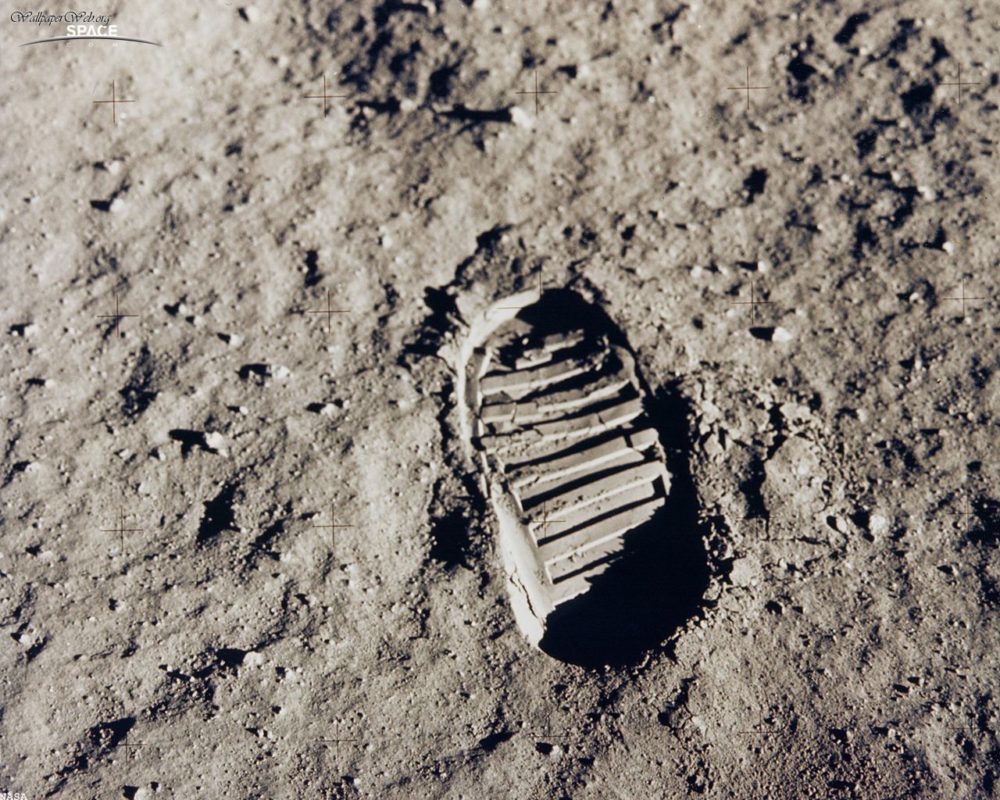BEAR*, 37 Stoic
Please be aware that this interview may cause distress to some readers. If you experience distress then please seek assistance and lean on your support networks.
How are you feeling?
Right now, pretty good. I’ve had my coffee, didn’t eat too many chips and the weathers pretty nice.
Can you tell me about your journey with mental health so far?
I was officially diagnosed in 2004 when I was almost 24. Probably, looking back there were signs of it in the preceding 4 to 5 years. I’ve been taking Zoloft since 2004, then between 2004 to 2012, it was relatively stable. I was diagnosed with depression and anxiety. The way my doctor looked at it they were both two sides of the same coin. I know that some people get more depressed or more anxious. In my case he reviewed it as one in the same. Then in 2012 I had a setback. I thought I was going okay, and I reduced my medication, and that didn’t work out too well. Then, as a consequence, I had to go higher on my medication than previously. I’ve now stayed at that higher level for good, so maybe that was a setback I had to have, in order to realise I needed to be on that higher level. I’ve been on that higher level since 2012, more or less.
In late 2015 to early 2016, there was an Australia-wide shortage of Zoloft, and I was forced to use a generic substitute, which I believe was not as strong as Zoloft. The upside to this was that I was more self-aware than during the 2012 episode. In terms of the journey, that’s one noticeable change. I’ve gotten better at noticing the signs when something’s not right, rather than being in freefall. Now I realise when I’m having a bad moment, so that’s good. That’s probably been how I’ve progressed the last few years, realising how you feel at a certain point, you won’t feel that way forever. Ten minutes later, my mood can change a lot. The last couple of years I’ve done a bit of mindfulness on and off, and that’s helped a little bit.
What were the signs that alerted you that something was wrong?
It’s always hard to tell, as I’m sure you would know you get caught up in the moment of being depressed and anxious. You get so caught up in whatever the trigger is, you don’t realise that you’re perhaps overreacting to whatever it is. Having said that, even back then, it got to a stage where I realised something was wrong. I was finding everyday life too overwhelming, daunting and just getting a bit disinterested in things. I used to like AFL (Australian Football League), and it dawned on me, I hadn’t been paying attention to it, the last couple of years, so just little things like that. Then a few immediate family members pointed it out, my mum in particular, that maybe I’ve got depression.
Do you think once we become aware of those signs we avoid them because we don’t want to admit to ourselves we have a mental illness?
Yeah, I think there’s that, and I assume you’re referring to the stigma, which I think there’s also that. We get so caught up in whatever it is that has triggered it, that we get caught up in whatever that trigger was. Whether it’s something at work or a relationship breakup, we get so caught up in that we don’t remove ourselves from that situation. That’s something I’ve gotten a lot better at now. Just stepping back and just saying that unless someone has threatened to kill you or your parents, and chopped your arms off, just step back a bit, things aren’t that bad.
Was it hard for you to take the steps to reach out and get diagnosed?
Funnily enough, it wasn’t. It depends. There were probably signs a lot earlier in my life that perhaps something wasn’t right. Once it became fairly obvious, I went to the doctor within one or two months of that.

What made you trust your doctor you initially went to?
He had been our family doctor since about the time I was born. My mum and dad went to him, so we at least sort of knew he was reasonably okay. Similarly, he would have been aware that we were a reasonably normal family, and that the causes of the depression/anxiety were largely biological. I would rather this approach than being hand balled to a shrink who is assuming the worst about our family.
In fairness to the doctors are probably trained to ask the following questions when being presented with a patient for the first time: Is it biological? Are they being sexually assaulted by a family member? He would have known in the back of his head it was a reasonable normal family. The only psychiatrist I’ve ever seen, when I was really bad, back in 2012, was someone he recommended. The psychiatrist was good, he was more on the medical side of things than the “your mum doesn’t love you too much”. That sort of stuff.
Did you walk away from the psychiatrist gaining a new perspective on your depression and anxiety?
Yeah, I did. I only saw him twice. I had that setback in late 2012. Basically, my GP’s general rule of thumb is the highest he’ll prescribe on Zoloft is 100 mg. If he wants to go any further, his professional judgement is get advice from a psychiatrist, and that psychiatrist may go up to 150 mg. Now that he’s done that, I see the GP for my refills. I only saw him twice because they have a fairly close relationship they trust each other’s judgement. I learnt that depression can often be far worse in the mornings, and that I appeared to have a case of mild yet persistent depression.
He said that can make it tricky if it’s mild because it’s harder to diagnose. I’ve always remembered that mild but persistent depression will always be there, and it won’t dictate or ruin your life, but it’s something you’ll have to keep an eye on. I only saw him twice, but he was good at what he does, and he certainly surpassed my expectations. I am not normally someone who needs that level of therapy, so now I just see my GP when I need a prescription refill.
After you were diagnosed, were the first steps to recovery coming to terms with the fact that you had a mental illness or medication?
If you’re talking about when I was first diagnosed, then medication was very much the first step. Part of it is learning to deal with it better, but I think part of it is maturity and growing up as well, if that makes sense. In other words, the older I get, the more aware I am of my strengths and weaknesses. I think when I was first diagnosed at 23-24 years old, I thought, “Oh I’m on the medication now, that’s it, end of story, I don’t need to do anything else”. Looking back on my twenties, there were signs that I had other areas to improve on. It really took that big setback in 2012 for me to really go back to the drawing board.
Do you think you’ll overcome your mental illness?
Yeah, I sort of am at the moment, living a sort of normal life, but I don’t think it’s ever going to be the case of, “Oh I had depression then, and now I don’t, end of story”. I’ve gotten myself into trouble with that in the past. In 2012, I thought I was alright, and I cut the medication. The way of overcoming it is not to be complacent, if that makes sense. It’s more efficient for me to say, “I have depression. This is the deal, and this is how you get through life”, rather than be completely oblivious and say, “Nothing to see here,” and it all catches up with you. It’s the same way someone who has diabetes has to remember to take their insulin. It’s not optional, that’s the way I look at it.
Can you talk to me about your anxiety? What type of anxiety do you have and the emotions surrounding it?
Probably the common theme throughout it all and this is still something I have to be careful of now, is just thinking too much about one particular thing that you have to do. Letting that get blown out of proportion, so when I had that setback in 2012, it was job related. Back then I didn’t have that awareness to step back from the situation. Even now I need to be careful. I’ll give you an example. Yesterday when you sent me the text with all the different questions, I thought “Oh god that’s all a bit overwhelming”.
Then I was like, “I’m going to deal with this later, not going to deal with this now”. Then went and did some exercise, a 30 minute power walk, and because I had a meetup on, I was pretty tired that night. I was like “Right, I’ll deal with this tomorrow”. Rather than deal with this when I’m tired, just that thing of being able to step back. Life is full of anxiety inducing things it’s things like that, just focusing too much on something that you have to do or something that might be an issue and blowing it out of proportion.

How do you work around that? e.g. Calendar or notes
I think it’s just a matter of doing one thing at a time and keeping it in perspective. Also, don’t try to complete tasks when you know you are tired and not thinking straight.
How does you find socialising with anxiety?
Yeah, it’s not too bad. It’s not so much that I get anxious. The only real barrier for me is getting motivated to do it. Sometimes I will think to myself “I can’t be bothered, it will be boring”. Forcing myself to do it, not so much the “What will they think of me or I haven’t got much to say”. Just getting my ass into gear and doing it. Which I know is probably different to other people, it’s not so much a shyness thing, it’s not that side of things. I know some people in the group (Depression and Anxiety Timeout- Melbourne meetup group) have that sort of thing where they think, “I’m worried I don’t contribute”. To be honest I’ve never really understood that.
What triggers your depression?
I do find thinking about the same things too much and not stepping back from a situation can be a trigger, but I’ve gotten a lot better at that. That’s less of an issue but it’s always something you got to keep an eye on, if you’ve got something to do you just got to keep it in perspective. The other triggers for me I find are, if I got some physically ailment or illness that can affect my mood a lot. As we’ve talked about previously, upset stomach that can affect my mood, and again it’s knowing what’s going on. You know you’ll get through it, it’s still pretty hard because sometimes you’re not sure “what have I eaten?” With physical ailments like that, they can be a trigger. If there is something wrong physically, that will drop my mood quite a lot.
How much does your diet play a part in your mental health?
In terms of triggers if I was to have a drink of alcohol right now I would feel really shit the next 5 days. The same with food, that’s why I didn’t go too hard on the chips. It seems to impact on my mood quite a bit.
What food takes a toll on your mental health?
Genuinely the healthier food, the better. Particularly things that are bad are high GI, high refined sugar and I’m just talking about mood. I’m not talking about weight gain and all that just the mood stuff alone is pretty noticeable. I don’t drink too much soft drink or fruit juice for that reason, I’ll eat whole fruits. Getting back to the chips, in terms of fried food I’ve read that fried food can be bad for depression. Basically, all the stuff that your doctors say that you shouldn’t have too much of anyway.
A couple of weeks ago, that Greek restaurant Stalactites, I went there, and foolishly got some chips. It was one of those places where they don’t replace the oil so the next day I was emotionally and physically wrecked. My stomach was upset so there’s that as well, knowing that some places don’t change their oil as often as they should. Again, being aware of that, knowing that if I eat that I might feel crap. I don’t have x-ray vision to know how every restaurant cooks their food, so sometimes less is better. For me it’s a big impact, I’m certainly not one of those people that says you can solve it by diet. I think that’s a bit over the top but it does make a difference.
What’s the worst depression or anxiety?
I suppose if I had to pick, I might say the depression. With the anxiety, you can theoretically say “I don’t care about anything, I could die tomorrow”. Whereas with the depression, if you’re really sad, it may be really hard to snap out of.
Which one lasts longer for you?
Potentially the depression can, probably for the reason I said before. With the anxiety, you can theoretically say “Screw it, we’re all going to die one day, don’t worry about things too much”. Then if you’re sad because of a lost friend or loved one it might be harder to snap out of that. If someone close to you dies, you can’t just say “screw it”. Whereas if you’re worried about your future you can say “oh it doesn’t matter, there can be a nuclear war tomorrow”. Sometimes when I hear about an asteroid hitting us in 10 years, in a way I think “I don’t have to worry about the future too much”.

Do you tend to worry about things that are unnecessary?
Yeah, I think most people in first world societies are guilty of that. I’ve gotten a lot better at that, in terms of worrying about my future, work, and all that. In the ideal world, I would have been working and progressing my career, but I’m progressing in other ways. I just try and dwell on that positive so in that side of things yes. My parents always brought me up to be careful with money all that sort of thing, so that’s rubbed off.
That’s sort of a good thing, and it’s kind of a funny thing when I’m worried about money, now my parents are like, “Don’t worry about money”. I will sometimes sarcastically and jokingly say to my parents, “Dee I wonder who I inherited my paranoia about money from”. In terms of other things, I think that the natural thing when your younger and you’re worried, thinking, “What will people think of me, and this and that,” as you get a bit older it doesn’t matter. “Yeah, so and so thinks I’m weird, that’s their problem”.
What’s been your biggest fear so far?
I think my biggest fear would be having some sort of illness that incapacitates me. That, I really worry about a lot, or just not being able to function on my own. Needing a live-in nurse; the thought of that just drives me mad. Completely losing your marbles, and I’m not talking a mental illness. Getting Alzheimer’s, where you can’t function normally. That’s obviously still several decades off, but those are the sorts if things I sometimes worry about.
What are you most proud of, and what would you count as the weakest moment in your life so far?
I’m probably proud of the fact, that I’ve realised that I’ve become very knowledgeable of the sort of things that can push my buttons a bit or can be potential triggers. Going into a situation and know that this situation can push my buttons a bit and just being aware of that. Probably the weakest moment in my life was that late episode in 2012 early 2013. Was a bit demoralising, in the sense that, I had been diagnosed 8 years earlier and then suddenly having that setback. I sort of thought, “Did I make any progress in the last 8 years? If so has it all been thrown away?” I felt very vulnerable in that sense.
Did you need that moment to happen?
In retrospect, yes, but at the time it was like what the hell is going on?
In terms of your depression and anxiety do you feel like your mind has betrayed you?
No because I think the starting point of it can often be a lot of bad luck in the gene pool. I’m certainly not in that camp of just saying “well you can just always talk yourself out of it”.
You mentioned work before, did you speak openly about your depression and anxiety?
Yeah, my manager was pretty understanding. A few colleagues were aware but it was good knowing my manager had my back a bit. I didn’t really feel like I was being penalised or anything like that.

Do you think you can speak openly about your mental health when you go into a workplace, nowadays?
I think you can. I think people understand that it’s a mental illness. However, I do think that some people need to be more understanding that mental illness can result in an interrupted work history. For me, being aware that it’s not as simple as saying “Awareness means x percent have this”. It’s the ramifications of someone with a mental illness having a stop start with their work and career. For me, personally, I haven’t come across a lot of full on stigma about it.
Whether it’s more the social or work side of things, if you don’t drink alcohol and people are like “why don’t you drink alcohol?” I think that’s where some people need to become aware of those little things, if you meet someone that doesn’t drink maybe that’s the reason why. It’s not for religious reasons or whatever they just don’t do it because it can make them depressed. I have to be more careful eating certain foods because I know how much it can affect my mood as well.
Have you been in a situation where you acted unlike yourself to fit in with others?
No, not really, it’s not my style.
Have you always felt comfortable in yourself?
Yep.
It’s interesting, because majority of the people I’ve interviewed struggle to love themselves and feel at ease within themselves and yet you do. Why do you think people do struggle?
Yeah, I don’t know. I suspect some people view depression and anxiety as a major character flaw, and that is why they struggle to love themselves. Whereas with me, perhaps I’ve always been a confident person, not so much always in my ability to do things, but in the sense of this is who I am, it is what it is. I’ve never really seen it so much as a reflection of a character flaw or anything like that.
If you happened to drink in the past, how did you find it affected you mentally and physically?
I think for a short time in my late teens so 18-20 years old, I found that it did improve my mood. However, slowly over time it became clear that it was making me more depressed. It was never really that thing of drinking and turning into a nasty person, it just kind of exacerbated the negative feelings that were already there.
Did the depression hit whilst you were out or the days following?
Yeah, both. Getting back to your first or second question about what were the signs of needing to get help, it was also around that same time that I started to find that that I would start to become depressed on the night that I was drinking particularly beer I started to feel lousy mentally. It is funny when you tell some people about it, they say, “Aww but having a hangover is normal”. No, I’m talking about as I’m doing it, so I’m getting no benefit while I’m doing it.
Do you think it’s a case of people having no understanding of mental health and mental illness in general or they just don’t want to hear it?
It could be both. I do think there are some people, because they have never known anyone they never have to deal with it. I do think there are other people who are hostile, in the sense that they don’t want to confront the idea that being mentally tough, is not always the solution for everything. It’s not as simple as being a strong-willed person. I think some people do find that confronting and maybe some of those people deep down maybe they have an issue they don’t want to admit or don’t know how to deal with it.

Do you think we often make allowances more often then we should for people who aren’t ready to hear about mental illness? If a person happened to feel comfortable only going to that person, do we continue making excuses for why they aren’t prepared? Is it a duty of care?
Ideally no we shouldn’t but in saying that, I find myself getting frustrated with other people like I’ve said to you “I can’t deal with any of these depression people today”. I find myself being just as judgemental and like I said to you a while ago, I was organising trivia and people were saying “I don’t feel like I contribute”. What the hell as that got to do with it? What does it even mean? So, I can be pretty judgemental myself as I said to a friend recently “you do have just have to draw that line and start caring less about stuff, not worry about things so much” and that’s part of it, it’s easier said than done.
I think you said something similar once when there was a group of us talking about it and that’s the process “not caring so much about certain things, end of story”. I do think we make excuses and people that say, “depression isn’t real” they’re obviously idiots but like I said I’m pretty judgemental. I’m particularly judgemental when we get excuses like “this shooter he had this illness and this illness”. In terms of crime reporting it has become a knee jerk cop out. The major thing I have to be careful of is not so much people not being aware, it’s me keeping an eye on myself. To me that’s a bigger issue, I think.
In saying that, do you think it’s our responsibility to look after ourselves or for others to keep an eye on us?
Ideally yes, what I was saying before being able to step back. Sometimes you need a second opinion to put things into perspective. I am sure there would be a high correlation between people who live alone and people who think and stew over things too much. They don’t have anyone to distract themselves from their thoughts. So, in that sense yeah, ideally yes. I think it would be very hard for say someone’s parents who aren’t very understanding.
Your question before and telling your friends where they don’t understand, I think that would be really hard if you don’t have understanding parents. You could go to a friend who you thought you could count on and they don’t really get it and then it’s like what do you do then? That’s tough. I guess it comes back to my usual rant when people have kids. Well once you decide to have kids here’s all the things that could go wrong in their life, you should kind of be there for them.
What’s your experience been with medication, and is it the only treatment you find that stabilises your depression and anxiety?
For me, like I was saying before, I’ve tried cutting it a few times before, but the end result is that I need to be on it. There are also other important things as well, like I was saying, I know it sounds repetitive, but just being able to step back from a situation a bit. Whether we are talking about mental issues or not, having an official mental condition or not, and being able to step back, so many people I think don’t do that, and get themselves into tricky situations.
Do you think you can survive without medication?
No, I think for me it works better if I’m on it. Also, that ability to step back from a situation, I’ve learnt over time, it’s just as important as well. It’s a bit of a 50/50 thing.
What do you think helps you more, medication or mindfulness?
A bit like my previous answer, it’s a bit 50/50. I don’t formally do the mindfulness stuff that often, but the lessons I’ve learnt from it, it is kind of 50/50 in that sense. For me I don’t think you can solely rely on medication or solely rely on natural remedies. I’m sort of in between the two, I think they are both important.
What does mindfulness consist of?
It’s basically trying to live more in the present. It’s less prescriptive then meditation, it’s not “you have to sit in this position and not move for 20 minutes”. It’s very much focusing, the way I’m kneeling now, feeling my arms touching the table, feeling my backside on the chair all that sort of thing.
Why mindfulness in particular?
Everyone kept talking about it.

Do you ever think you’ll get to a point where mindfulness is enough for you and you’ll be able to get off medication?
No. Cutting medication was a big factor during my setback in late 2012. Then once in my twenties after a year and a half of being on it, where I tried cutting it and the same thing happened. So, I think it’s not for me, it’s just how it’s going to be. It’s not the end of the world, provided I can keep weight under control then I can be on it. For a while my doctor was worried because my weight, was going up and up and up but I’ve sort of gotten that under control, by and large, certainly better then it was. One advantage of getting older is that you don’t like eating as much.
I look at it as an advantage, less junk food. I understand that some people do want to get off the medication because of the side effects. For me when I did start on it, I found the hot weather would hit me for six. My psychiatrist did say the Zoloft would reduce your ability to cope with heat, especially dry heat, when we get dry heat here. When I go to Thailand with humid heat, I’m fine. It’s just that really dry heat but again the benefits outweigh the cost. I have found since I’ve lost weight that’s gotten a lot better as well, coping with both hot and cold.
Do you think in your mind the medication had a placebo effect?
No, I’ve always been at the other end of the spectrum. I don’t deny that the placebo effect is real, for me I believe the medication effect is real. In my twenties and really up until three years ago I was guilty of thinking, “Well, I’m taking medication, and this is all I have to do”. It’s the opposite, for me I wish there was a placebo effect. For the few times, I have tried cutting medication, the slip down was gradual, I didn’t realise it was happening. If it was a true placebo effect, it would be like “Right, I’m on a lower level now, I need to keep an eye on myself”. Whenever people talk about a placebo effect, I look at them and think, “If only there was a placebo effect”. For me I think the impact of the medication is genuine, and much more than simply a placebo effect.
Have you tried to wean yourself of Zoloft since that last time in 2012?
The only other time was late 2015 early 2016. There was a period where Zoloft was pretty much out of stock around Australia. I was on a generic and I’m convinced it wasn’t as strong so that was basically an unintended experiment of being on a lower level. Sometimes the generics aren’t as strong and I could feel the difference again. I even noticed the difference then in mood, at least by then I knew what was happening and I was better at spotting the signs. That only became an issue because it was out of stock and I had to take the generic. There was a bit of a thing where I had to get used to the generic and get used to the full strength again.
Do you think people rely too heavily on medication?
I was guilty of this in my twenties and early thirties. In retrospect, that was a problem because I was not looking at other ways in which I could improve. My GP is happy to prescribe 150 mg Zoloft for the rest my life, but has warned that there is a link between Zoloft and weight gain. I’ve shut him up now because my weights been fine for the last few years. I have heard that certain psychiatric drugs such as lithium can adverse health effects if taken over a long period of time, however that is not the case with Zoloft. There is no issue like that for me. I do think some people if they are taking medication they need to be open to other ways of improving themselves. I went up to 150 mg and things got a bit better but I realised there was still some other stuff to do.
Have you noticed a difference in your depression and anxiety from your twenties till now?
Yes, the things that you worry about in your twenties are different to your thirties. It’s easier now, you’re more aware of the stuff that pushes your buttons. Whereas, in my twenties, I had a mindset of, “Oh, I take medication now, I don’t need to think about it”. In retrospect, there were other things I could have been doing to improve. In my case, this is probably different to someone your age but a lot of the people in the group these days on their profile, they will say they were diagnosed at 15. I turned 15 in 1995 and there was far less awareness of mental illness at that time. I was diagnosed at 23 and half, so I consider that to be the starting point of the learning process.
With the stigma surrounding mental health and mental illness do you find you feel more out of place because of it or is it the opposite where you feel special and unique?
Yeah, it’s funny you say that because we were talking about that at the meetup last night. My setback in 2012-2013 at the time seemed like a nightmare, but in retrospect it was something that needed to happen. Being forced to re-evaluate yourself and how you respond to things because you’re forced to do that, you look at some other so called “normal people” that haven’t had the major setback and sometimes the so called “normal people” aren’t forced to re-evaluate how they react to others. Whereas in our situation we are, that’s the benefit.

Do you think people with a mental illness tend to put things into perspective more and are aware not to repeat the same unhealthy routine unlike others?
Yep. It’s funny I was being kind of cheeky talking about this last night but then you sort of start to look around especially when you’re in a good frame of mind and you look at the so called “normal people” and think, “Hang on, if we want to play the nit-picking game, I can notice some peculiar behaviour in the so called normal people.” I look at some people and think, “Oh god, their one medium crisis away from being tipped over the edge”. We all know people like that, they’re a bit that way but not fully that way. People like us are better prepared for any pending midlife crisis, we have already had mini crises in our teens, twenties and thirties. I’m less worried about the dreaded 40, I’ve already had a few upheavals.
How do you feel the media has approached mental health and mental illness? Has it made more of a positive or negative difference?
I think it’s good, in a sense. They talk about it so people know it’s there. Whenever there is a mass shooting or terrorist event, the media is often keen to discuss the mental health of the perpetrator. Well, in one sense that’s good, they are aware that exists, but I do get annoyed about that as well. It’s like, how about all the other people with mental illnesses who struggle through life that don’t feel the need to commit crimes? In 2014, it was reported that one of the Australian members of Islamic State suffered from schizophrenia. What about all the people who had schizophrenia before Islamic state? That annoys me a bit, but to be fair, it’s not necessarily journalists, it’s sometimes commentators or rent-a-quote type people. It’s good that it’s acknowledged and something that is there.
Where are we lacking in terms of support for mental health and mental illness?
This is not so much something Governments can do or anything like that. It’s more of an everyday thing and understanding why that person and I come back to the drinking thing, if you’re with a group of friends or going out with colleagues after work and somebody isn’t drinking alcohol maybe there’s a really good reason for it. They’re not just doing it to save money, or for religious reasons they are actually doing it because they can’t. Just on that everyday level how many times have we heard x percent of people have a mental illness? We’ve heard that a million times but what does it actually mean in everyday life? I think people having a greater understanding of how people are coping with it, the things they might have to do to lead a normal life.
Who do you count as your support system?
Probably my parents a lot. They don’t have depression and anxiety like myself or at least not to the extent I do. Just knowing someone’s there that cares is perhaps more important. I’m not really the sit down and talk to the therapist about it type of person. Knowing that you’re there if I have to ring is good although I’ve hardly done that, just knowing that it’s there.
If you could provide a supportive message to those with depression and anxiety what would it be?
Just be open to trying new techniques. Don’t underestimate the negative impact alcohol and drugs can have. There is part of me that thinks maybe if I hadn’t drunk so much in my late teens, that maybe I wouldn’t need to be on medication for the rest of my life. I do really think it can bring it out, especially when your brain is still developing. The human brain is still developing well into our twenties. In my experience, the solution has been part medication and part natural treatment. The first medication I tried seemed to work quite well, however, I know that for some people that it can be a lengthy exercise of trial and error.
How are you feeling now?
Yeah, fine. Pretty good, it’s interesting talking about it, you’re sort of reflecting on what you’ve learnt over the years.
*Name has been changed to maintain confidentiality